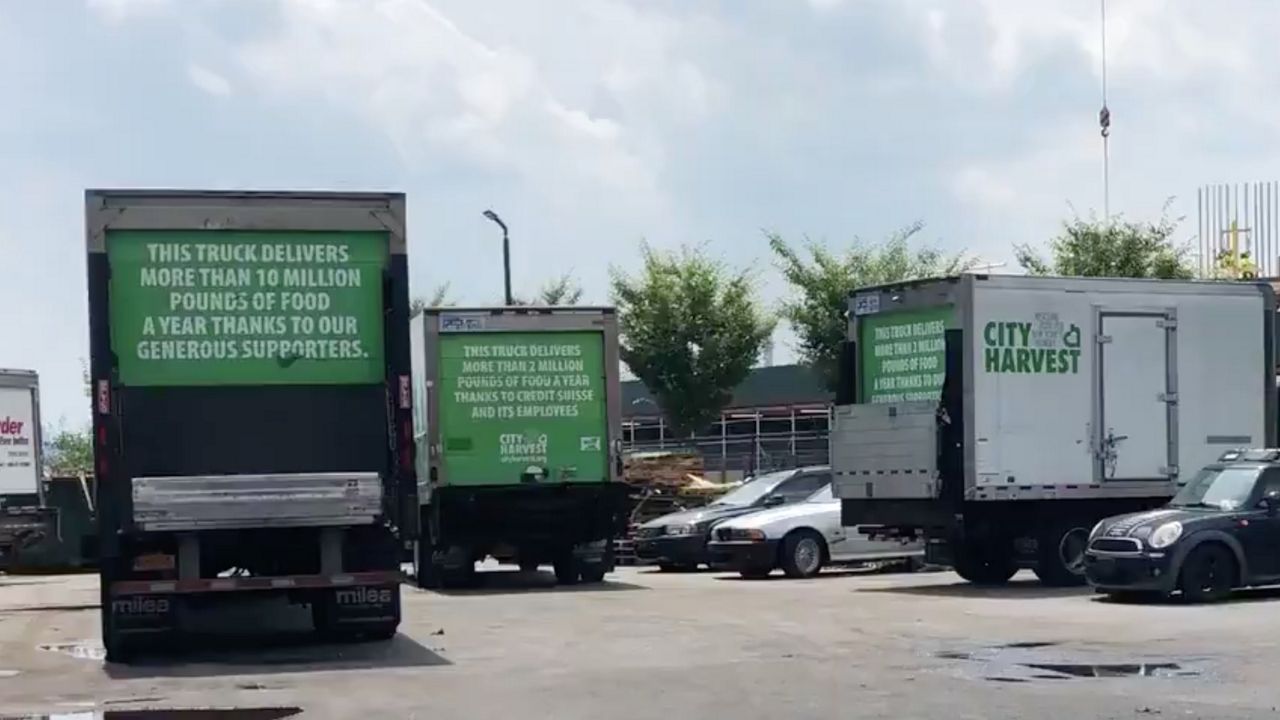Workers at the City Harvest warehouse pack bags of food, filling them with produce, canned goods and pantry items like potatoes and rice. They are able to fill as many as 40 pallets a day with these packages, far more than what they did before the coronavirus pandemic.
Jim Dunne is the director of warehouse operations at City Harvest.
“We would do two of these events a week and now we’re doing 10 of them a week, which is five times what we did just a year ago,” he said.
City Harvest is the city’s largest food rescue organization, providing food to pantries and soup kitchens.
With unemployment hovering around 18 percent, the need is unprecedented and not expected to go away anytime soon.
The Mayor's Office estimates that more than 2 million people lack reliable access to a steady supply of nutritious food.
Dunne said he can see that demand.
“It’s going up. We’re seeing an increase in demand and need and unfortunately I don’t think it’s going to get better,” he said.
The food here comes from a variety of sources, some from local and out-of-state farmers, some donated by restaurants and caterers.
City Harvest estimates it has already blown past the 64 million pounds of food it distributed in all of 2019, and is now approaching historical levels of food to be given out to New Yorkers in need.
“By the end of this June, we moved 82,000,000 pounds of food and most of that was from March to June when the pandemic struck. Because of COVID-19, we are now planning to move 109 million because we do believe the increase for demand is so dramatic,” Dunne said.
The operation has gotten so expansive that even the 40 thousand square foot warehouse has been reorganized to make space for additional food.
“We’ve had to tear down office space, we got a mobile trailer for our staff outside the parking lot to make more room for food," explained Dunne. "The food turns over at incredibly rapid rate so it comes in it goes out but you still have to store it.”
Fourteen tractor trailers deliver nearly 300,000 pounds of food a day all over the city.
Last year, only 7 tractor trailers came to the warehouse daily.
City harvest says it is counting on its public and private partnerships to help it continue to provide food at these record breaking levels.



